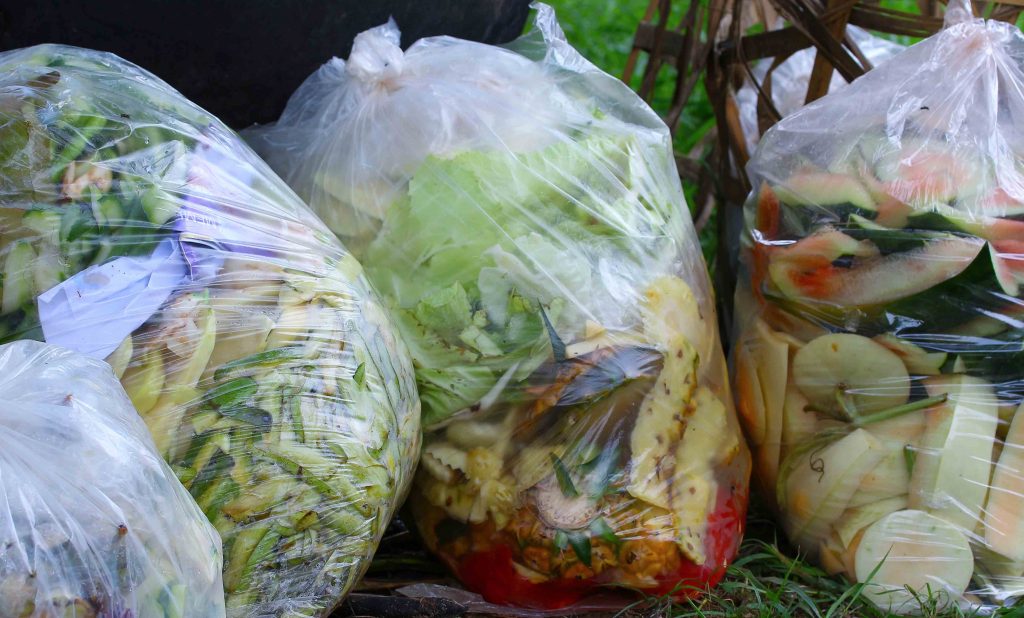Food waste is perhaps one of the most misunderstood waste streams we deal with today. Many assume since it is an organic material, it is of little consequence when sent to landfill. However, the reality surrounding food is very different, and alongside the significant resources required to produce it, dealing with what’s leftover places a serious burden on the environment.
When sent to landfill, food waste emits significant amounts of methane and carbon dioxide, alongside leachate which has the potential to contaminate groundwater supplies. Additionally, landfill sites attract pests such as rodents that can spread diseases, as well as being incubators for dangerous bacteria themselves. Finally, the sight and smells of landfill sites close to human populations, particularly cities, can also have psychological and health implications.
Today, food waste is the largest single municipal solid waste (MSW) component in the US. On average, it is estimated that almost 1.5 pounds of food is wasted, per person, per day, and some 30% of all available calories (a quarter of all foods by weight) are never consumed. Add to this the fact that only around 5.3 percent of that total is recycled, and the food waste issue begins to take on a much more disturbing aspect.
But what are cities doing about food waste? And how can we encourage better waste management practices that lead to food waste reduction? Here we take a look at some of the challenges cities are facing, and how new initiatives are presenting better options for dealing with this type of waste.
Food waste in NYC

Source: TimeOut
New York is at the forefront of a food waste movement spreading across the US. In 2019, the city introduced a first-of-its kind food waste bill designed to redirect more waste away from landfill than ever before, legislating that businesses must both donate and sustainably recycle food waste or face a fine and possible loss of license. The Food Recovery and Recycling Act extends to the largest generators of food waste in the city, including; restaurants, grocery stores, hotels & motels, colleges & universities, malls, and event centers.
The challenges faced by the city include connecting a fragmented waste management network to deliver food waste efficiently to food banks, farms, or recycling centers. However, this has presented a new opportunity for the city to overhaul its existing waste management structures entirely, and the new Commercial Waste Zoning Bill is a significant step in the right direction.
Food waste in Austin

Source: Do512
The Universal Recycling Ordinance (URO) in Austin, Texas, dates back to 2010 and covers a broad range of different waste streams. Specifically related to food waste in the city, the URO dictates that all food-related businesses provide convenient access for employees to recycle organics efficiently. Additionally, plans and regular reports must be handed over to the respective authority to prove reduction, donation, and composting.
Connecting both the English speaking and large Spanish speaking populations across the city has been identified as one of the biggest challenges. However, by providing information and signage in both languages, Austin has made significant progress in its goal of reaching Zero Waste. Added to this, the city’s commitment to education and developing innovative solutions to food waste diversion are forward-thinking.
Food waste in San Francisco

Source: Open Table
In 2009, San Francisco introduced mandatory recycling and composting requirements for both businesses and residences, passing the US’s first composting laws at the same time. The Citywide Food Waste Recycling program now diverts around 80% of its waste away from landfill, and everything is delivered to the Recycle Center, a 200,000 square foot warehouse that processes 40 to 50 tons of waste per hour.
While food recycling in the city is exceptionally high, challenges remain surrounding effective food donation. In recent years the city’s food banks, in particular, have struggled to meet demand, and opportunity lies in connecting edible food waste with distribution centers to tackle food poverty in what is a relatively affluent city.
Food waste in Portland

Source: pressherald
Portland’s Administrative Rules state that all businesses must separate food scraps from other solid waste for either composting, delivery to an authorized facility, or to be used as animal feed. However, there are currently no laws regarding food donation, and this outlet for edible waste is entirely left to individual discretion.
While Portland is progressive in how they deal with food waste, they have an opportunity within their food waste management system to introduce legislation around mandatory donation or reuse. The sheer amount of resources required to produce food, both inside and outside the US, suggests that the waste challenge is much more pronounced than simply dealing with food scraps. However, the Portland Food Project and other organizations are beginning to fill the gap.
Food waste in DC

Source: washingtonDC
As part of Washington DC’s Zero Waste pledge, the city has begun to take action on its food waste problem with an amendment to its Zero Waste Bill. Introduced in late 2019, the amendment requires that uniform recycling labeling schemes are introduced and contamination in compostables are minimized. It also establishes a food donation program designed to reduce the amount of waste disposed of in landfill.
DC’s commitment to zero waste by 2032 has been given a huge boost by these new rules. However, aligning its plans with existing business operations is seen as a challenge. In particular, certain businesses have come to resent the mandatory signage law, complaining that “message clutter” has the potential to be self-defeating. In this case, the opportunity for improved recycling education is particularly apparent, and over time, mandatory signage may be phased out.
Food waste in Philadelphia

Source: uwishunu
Philadelphia’s plans for food waste include the introduction of a city-wide network of 25 composting sites for residents to recycle all types of organic material. In addition to this, a new facility in Tacony Creek Park will open in the spring of 2020, initially accepting organics and food waste from 30-35 recreation centers with the hope of scaling up to include all 156 centers.
Philadelphia has experienced longstanding littering and waste management problems, and these new food waste measures are seen as an opportunity to solve these issues. It is hoped that as the city moves forward with its new programs, Philly will be able to eliminate food waste of all kinds. Better signage and education are key to this, and there is plenty of opportunity for the city to engage businesses and citizens with further sustainability programs.
While cities across the US are taking the first important steps in reducing food waste, many of their plans revolve around private waste management companies to make it work. RTS helps businesses correctly recycle and donate food waste through education, signage, dumpster rental, and, of course, collection and diversion.
For more information on how RTS can help your business recycle food waste, contact one of our LEED Accredited advisors today to discuss your requirements.

